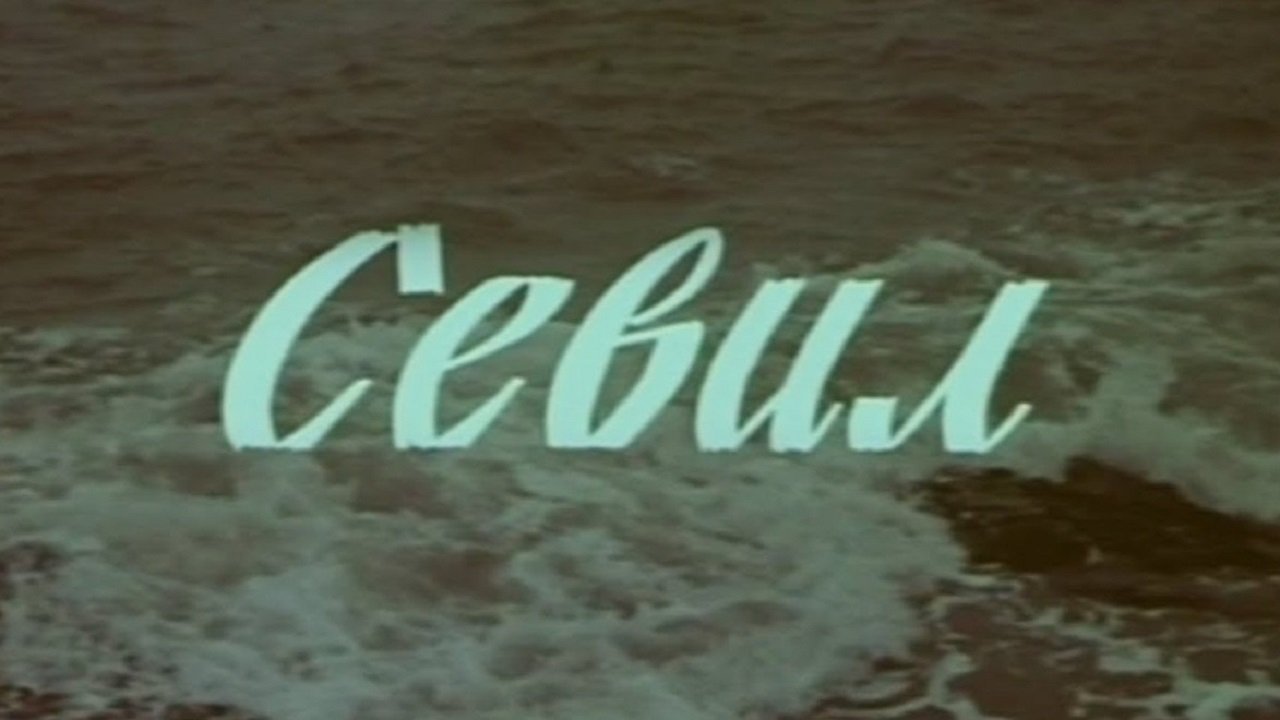
Sevil (1970)
The film takes place in Baku in 1918-19 and then several years later. The film is based on the opera of the same name by Fikret Amirov. Sevil became the first film opera in the history of Azerbaijani cinema.

The film takes place in Baku in 1918-19 and then several years later. The film is based on the opera of the same name by Fikret Amirov. Sevil became the first film opera in the history of Azerbaijani cinema.
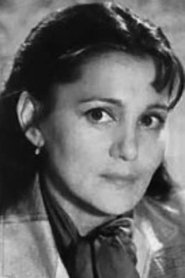 Valentina AslanovaSevil
Valentina AslanovaSevil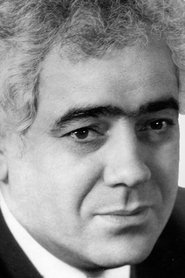 Hasan MammadovBalash
Hasan MammadovBalash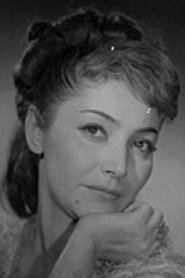 Safura IbrahimovaDilbar
Safura IbrahimovaDilbar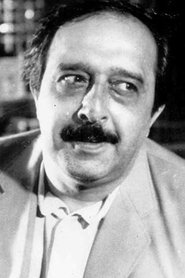 Hamlet GurbanovAbdulali bey
Hamlet GurbanovAbdulali bey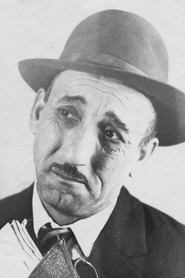 Mammadsadig NuriyevMammadali bey
Mammadsadig NuriyevMammadali bey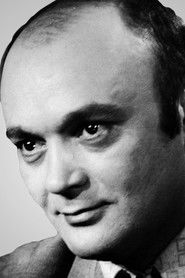 Hasanagha TurabovRustamov
Hasanagha TurabovRustamov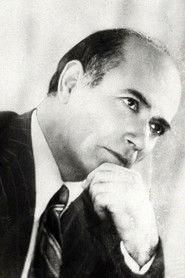 Rza AfganliAtakishi
Rza AfganliAtakishi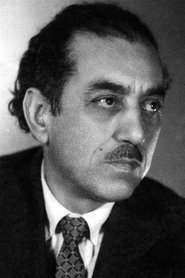 Agharza GuliyevBabakishi
Agharza GuliyevBabakishi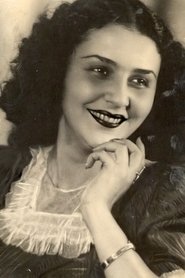 Leyla BadirbayliTafta
Leyla BadirbayliTaftaThis adaptation of three tales by E.T.A. Hoffmann, with a sprinkling of Goethe’s Faust, portrays the German poet as both narrator and hero recounting his love affairs with Olympia, Antonia and Giuletta. Robert Carsen’s spectacular production highlights the melancholy genius of a man marked by life, with a coherence and dramatic sense remarkable for a work that leaves numerous questions unanswered. Under the baton of Philippe Jordan, Stéphanie d’Oustrac, Ermonela Jaho, Kate Aldrich, Yann Beuron and Ramón Vargas and Stefano Secco in the main role, interpret the legendary airs of this work whose brilliant mystery will continue to dazzle opera houses for countless years to come.
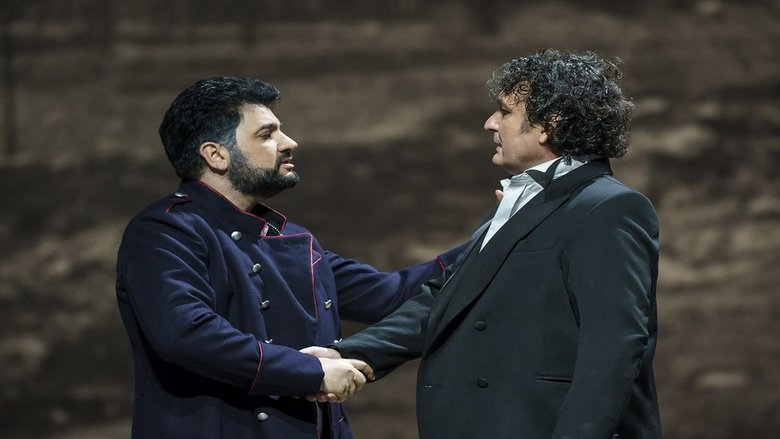
Verdi's sweepingly ambitious opera on war, religion, love and fate is given a cinematic staging by Christof Loy. The Marquis of Calatrava forbids his daughter Leonora to marry the South American nobleman Don Alvaro. The lovers attempt to elope, but the Marquis catches them. In the ensuing altercation, Alvaro accidentally kills the Marquis, who curses his daughter as he dies. Leonora and Alvaro become separated during their escape. Leonora's brother Don Carlo di Vargas decides to find them and avenge his father.
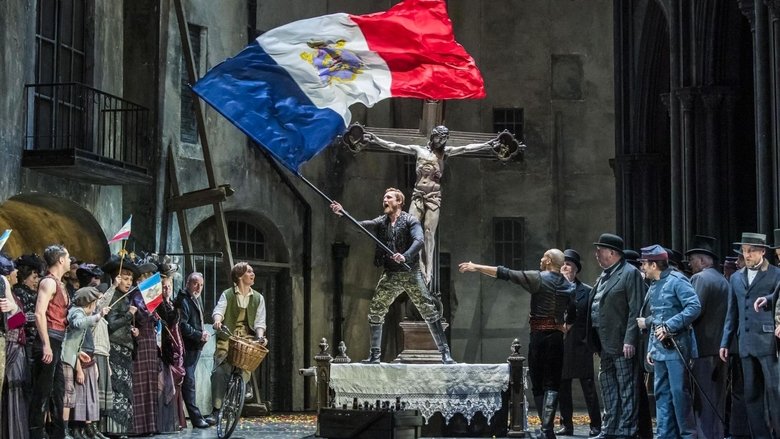
Disillusioned with life, the aged philosopher Faust calls upon Satan to help him. The devil Méphistophélès appears and strikes a bargain with the philosopher: he will give him youth and the love of the beautiful Marguerite, if Faust hands over his soul. Faust agrees, and Méphistophélès arranges matters so that Marguerite loses interest in her suitor Siébel and becomes infatuated with Faust. Faust initially seems to love Marguerite in return, but soon abandons her. Her brother Valentin returns from the war and is furious to find his sister pregnant. Will Faust repent his destructive actions, and can his soul, and Marguerite's, be saved?
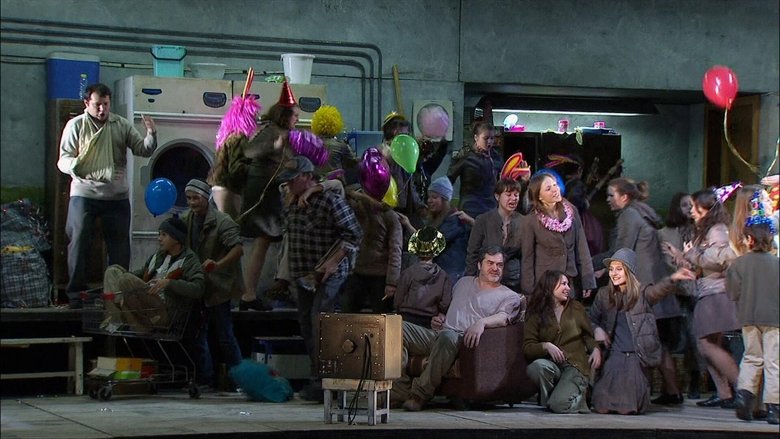
In October 2013, the Mariinsky label releases a DVD & Blu-ray of Strauss most Wagnerian of operas, Die Frau ohne Schatten. Filmed in the historic Mariinsky Theatre in 2011, it stars Russian tenor Avgust Amonov as The Emperor, Mlada Khudoley as The Empress, Olga Savova as The Nurse, and is conducted by Valery Gergiev. The Mariinsky Theatre is one of the few opera houses capable of staging Die Frau ohne Schatten, due to the demanding soloist roles, elaborate sets and large orchestral forces required. This epic production, premiered in 2009, is a collaboration between two British artists, director Jonathan Kent and designer Paul Brown, and has become a regular fixture in the opera company s schedule.
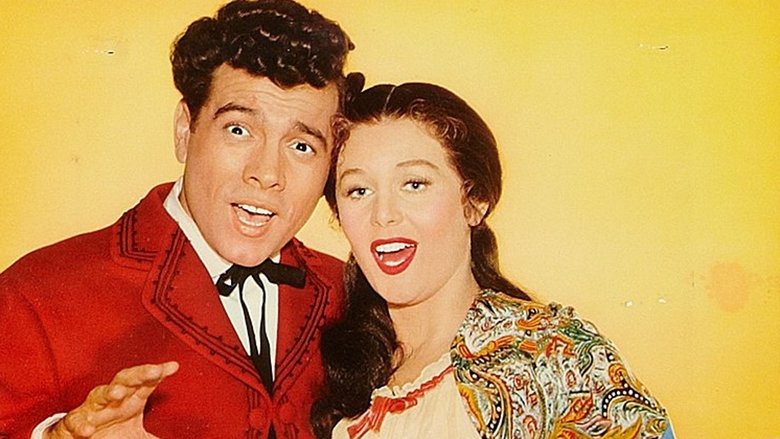
A famous opera singer falls for his sergeant's sister at boot camp.
The heroic Koroghlu is a poor youngster who leads a peasants' revolt against the tyrannic Khan.
Envy and conspiracy, but also passionate loves, jealousy, revenge and final forgiveness come together in the masterpiece of Verdi, which aroused the anger and prohibitions of censors of the time until the composer and librettist was compelled to make changes in it: from the original Sweden to far away Boston. The great Polish tenor Piotr Beczala returns to the Liceu with one of his opening credits, accompanied by the soprano Keri Alkema. Vincent Boussard’s sets reinforce the dark and mysterious atmosphere surrounding the piece, which features costumes by Christian Lacroix and Vincent Lemaire’s sober staging, which allows one to focus their attention on the dramatic core of the score. The cast, directed by a true specialist like Renato Palumbo, also presents a leader in Verdian song: Dolora Zajick.
Hans Werner Henze’s “The Raft of the Medusa” is directly inspired by Théodore Géricault’s famous painting. The German composer sets to music the fate of 150 people who have been shipwrecked and abandoned to their destiny. This is a radical work that fluctuates between hope and inevitability, agony and sudden bursts of life. The Raft of the Medusa is an oratorio that was first performed in 1968. Fifty years on, the Italian director Romeo Castellucci underscores its immense modernity, drawing a striking parallel between Hans Werner Henze’s work and the current migrant crisis in the Mediterranean.
Mozart opera.
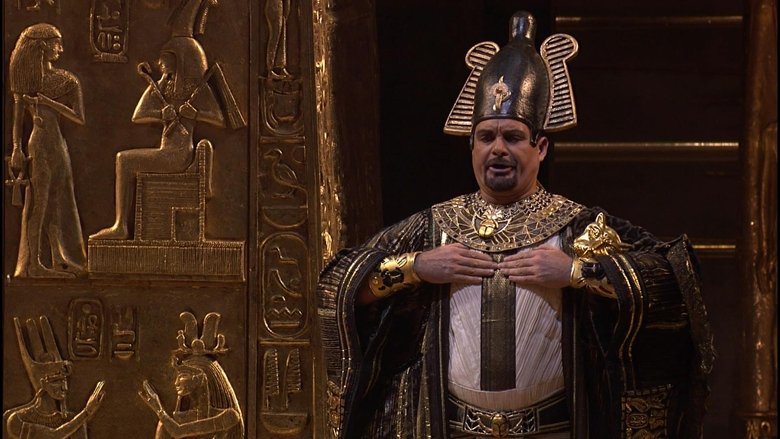
Early recordings of Franco Zeffirelli's 2006 production of Verdi's opera which saw Roberto Alagna's high-profile exit during the second performance. Egypt and Ethiopia are at war. Radames is appointed commander of the Egyptian forces by the King, whose daughter, Amneris, loves Radames. It is in fact Amneris' Ethiopian slave Aida whom Radames loves. Ramades wins the war against the Ethiopians, capturing Aida's father Amonasro in the process. On his return to Egypt he faces a choice between marrying Amneris or betraying his country through his love for Aida.
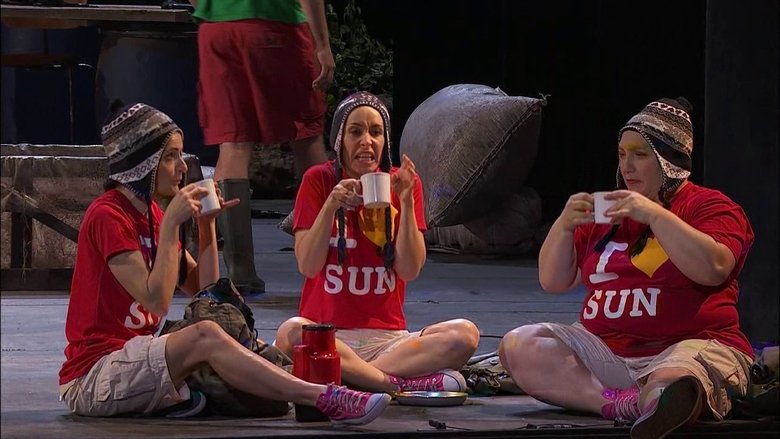
For the launch of its DVD collection, Alpha is joining forces with Christophe Roussets Les Talens Lyriques in Rameaus opera-ballet Les Indes galantes, his most famous work, here performed in its 1750 Toulouse version. Particularly rich both on the musical level and in atmosphere, scrutinizing love in far-off lands (Turkey, Peru, Persia and America), it responds to the infatuation with exoticism that tinged all the arts of the century. Rameaus dance music is always quite suggestive, evocative of a movement or a pictorial atmosphere. As for the staging, Laura Scozzi brings her contemporary vision to these countries and travels. Filmed at the Bordeaux National Opera, this production marked the Rameau celebrations in 2014 and was unanimously hailed by the international press
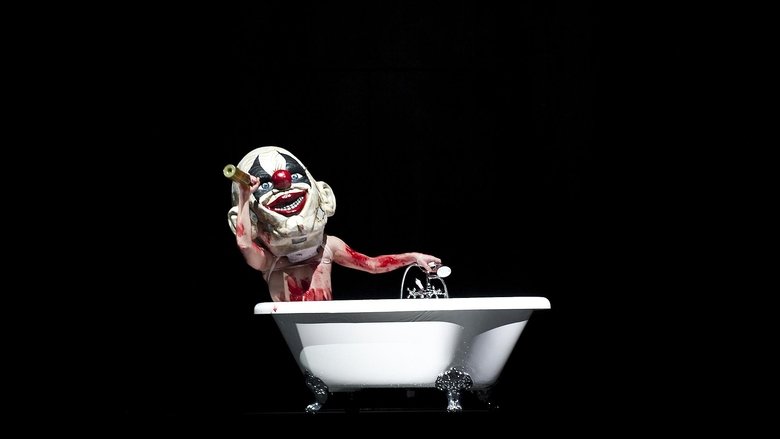
Conspiracies and regattas form the backdrop to the fortunes of a young singer. Harassed by a heartless spy, she sacrifices everything to save the man she loves and the woman he prefers over her. Ponchielli based his flamboyant opera on Victor Hugo’s play Angelo, tyrant of Padua. An expert on Hugo, director Olivier Py offers us a dream-like version of this dark Romantic tragedy, presided over by sex and death. Paolo Carignani conducts an exceptional cast in the six demanding main roles.
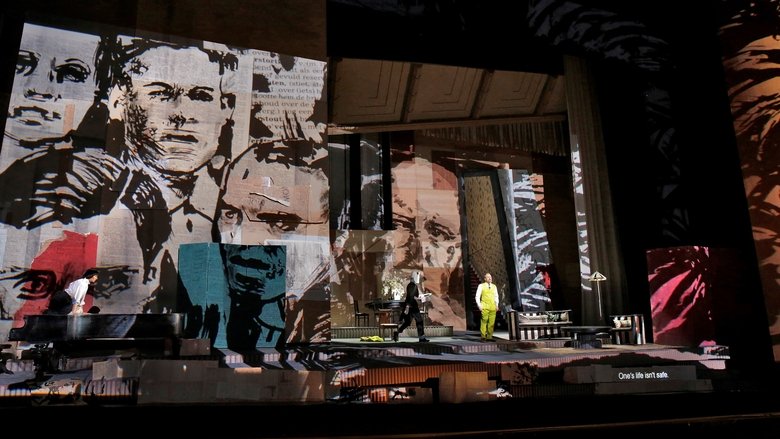
William Kentridge’s multi-layered production of Berg’s masterpiece stars charismatic soprano Marlis Petersen in the title role—the enigmatic and alluring woman who is equal parts femme fatale, innocent girl, and abused victim. The men around her, whose lives she forever alters, are Johan Reuter as newspaper publisher Dr. Schön; Daniel Brenna as his composer son, Alwa; Paul Groves as the Painter; and Franz Grundheber as Schigolch. Susan Graham sings Countess Geschwitz, and Lothar Koenigs conducts Berg’s landmark score.
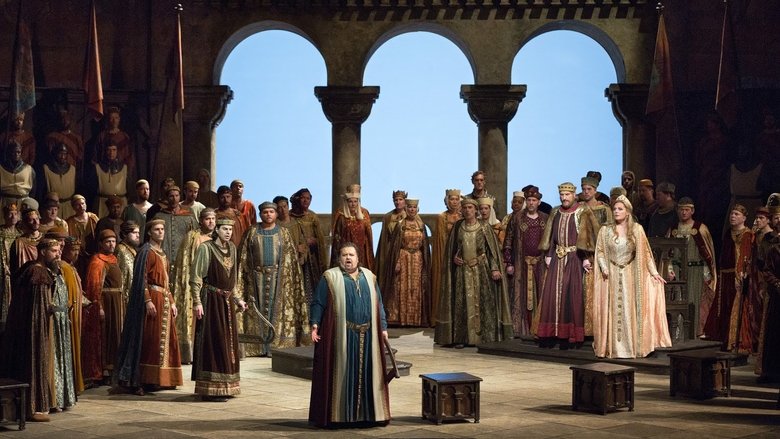
Met Music Director James Levine leads this Live in HD presentation of Wagner’s early Romantic opera, starring Johan Botha in the title role of the minnesinger torn between earthly passion and true love. Eva-Maria Westbroek is Elisabeth, whose unswerving devotion redeems Tannhäuser’s soul, and Peter Mattei sings Wolfram, his faithful friend. Michelle DeYoung as the love goddess Venus and Günther Groissböck as Landgraf Hermann complete the cast. Otto Schenk’s classic production was the first of his acclaimed Wagner stagings at the Met.
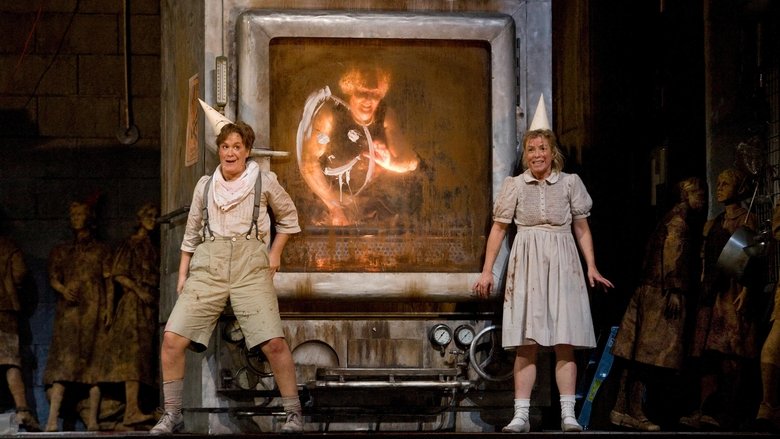
This deliciously dark take on the beloved Brothers Grimm fairy tale, appealing to audiences of all ages, was part of the Met’s popular English-language holiday series. Alice Coote and Christine Schäfer star as the famous siblings lost in the woods, who battle the ravenous Witch—a zany portrayal by tenor Philip Langridge—while the Met orchestra, under the baton of Vladimir Jurowski, glories in the rich, folk-inspired score.
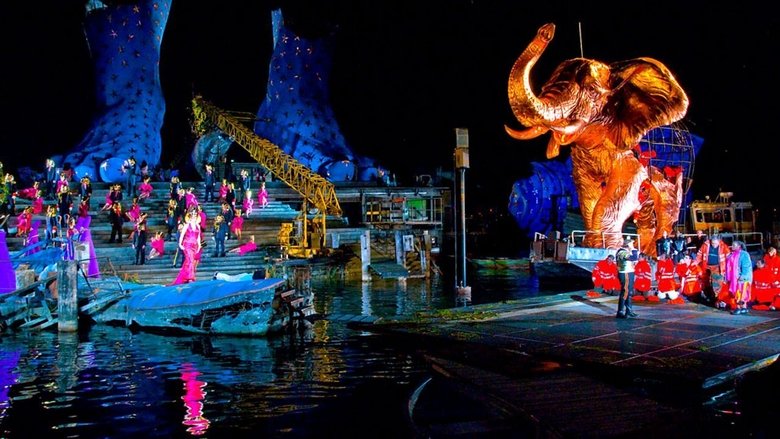
A spectacular production of Aida filmed at Bregenz Festival's lakeside stage in 2009, with Carlo Rizzi conducting the Vienna Symphonic Orchestra and the Polish Radio Choir.
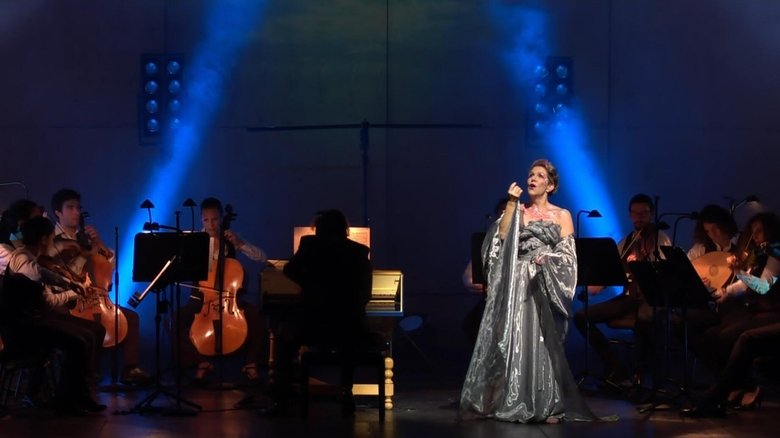
Recorded live in June 2017 at the magnificent Liceu Theatre in Barcelona, this DVD is the companion to Joyce DiDonato’s award-winning album In War and Peace: Harmony through Music. Seeking answers to the existential question “In the midst of chaos, how do you find peace?”, it makes a compelling piece of music theatre as DiDonato journeys through arias by Handel, Purcell, Monteverdi, Leo and Jommelli with Il Pomo d’Oro and conductor Maxim Emelyanychev. On stage, In War and Peace: Harmony through Music makes a compelling piece of music theatre. In Barcelona, as on the European and North American tours she made in late 2016, DiDonato was joined by the baroque orchestra Il Pomo d’Oro and its principal conductor Maxim Emelyanychev. May and June 2018 bring further performances in Portugal, France, Germany, Turkey and Hungary.
"Rosa", with a libretto by Peter Greenaway and score by Louis Andriessen, is the first in a projected series of 10 operas, each dealing with the death of a famous composer - some real, others fictional. "Rosa" falls into the latter category; it tells the story of Juan Manuel de Rosa, a Brazilian who went to study music in America but spent most of his time in the cinema instead, becoming particularly entranced by Westerns. Now 32 years old and residing in an abandoned Uruguayan slaughterhouse, Rosa has become one of Hollywood's foremost composers, specialising in Westerns. He also has a beautiful 19-year-old fiancee, Esmeralda, but he pays her little heed, instead lavishing his attentions on a black mare named Bola. One day, a group of men attired as cowboys arrive at the abattoir and kill both Rosa and Bola; an investigation is conducted, with particular suspicion!
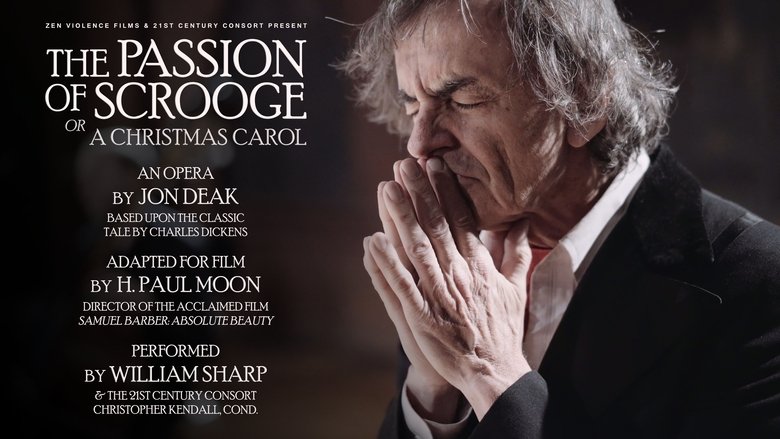
Is this a film about Scrooge? About a composer’s life? An opera within an opera? The Passion of Scrooge blurs these lines between performance, documentary, and fiction, into a cinematic concert experience that’s seasoned with magical reality. Composer Jon Deak has adapted Charles Dickens’ timeless tale into a contemporary opera that melts the heart, but doesn’t avoid the darkness in Scrooge that’s still resonant with the material concerns of our time. Using neither period costumes, nor set pieces to reconstruct old England, the film invites you to experience A Christmas Carol with the imaginative possibilities of a radio play. And then, to meet those visions in your head, filmmaker H. Paul Moon‘s floating camera intimately captures musicians performing the score as characters themselves, in this ageless haunted redemption story about “us, every one.”
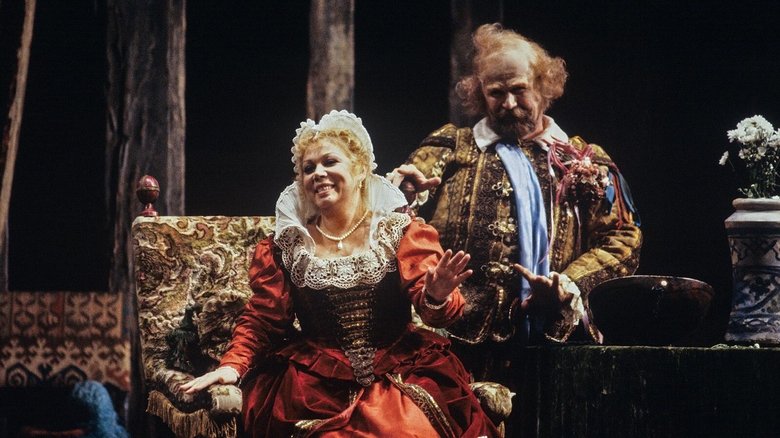
It is to composer and librettist Arrigo Boito and his constant pestering of the octogenarian Verdi that there remained within him one last great comedy fighting to get out that we owe this absolute miracle of an opera. Produced in 1893 as Verdi turned 80 there is much in this masterpiece that can be identified as a modernist neoclassical work. The use of short motifs instead of long arioso melodic lines, the spry and reduced orchestral textures and the lack of a single 'stand and deliver' dramatic declamatory aria all serve to make this more of a 20th century work than an example of 19th century late-Romanticism.